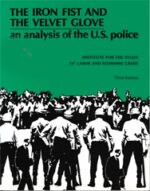Description
Illusions in Truth Seeking: The Perils of Interrogation and Torture in the War on Terror
While scholars continue to bring to the forefront of discussion important economic and geopolitical aspects of state crime committed in the American war on terror, the area of inquiry can also gain insights from the sociology of knowledge as it corresponds with the field of science studies. Accordingly, this analysis seeks to understand the epistemological foundation of torture by examining the assertion that “enhanced” interrogation is a valuable method of uncovering the truth because its techniques are believed to be scientifically based. Much like other attempts to solve crimes through the use of “science,” the effectiveness and reliability of torture as a means of truth seeking is illusory. The reemergence of brutal interrogation in the wake of September 11, 2001, as this critique demonstrates, is facilitated by several key developments: namely, the putative respectability of “scientific” discourse, a belief in the psychology of interrogation, claims of reversible injuries, and dishonest interpretations of law.
torture, third degree
Citation: Social Justice Vol. 37, Nos. 2-3 (2010-11): 123-148.



Reviews
There are no reviews yet.